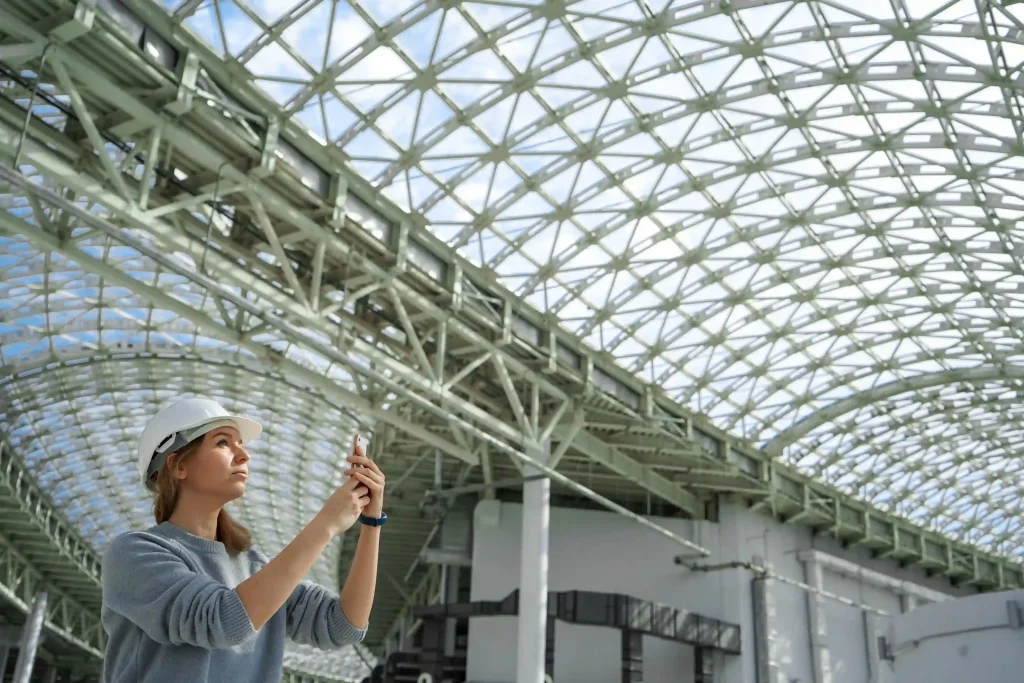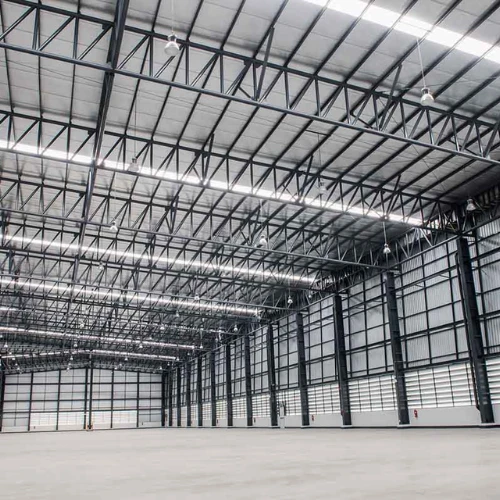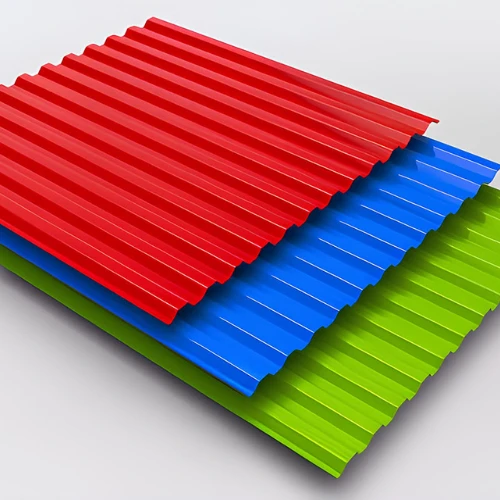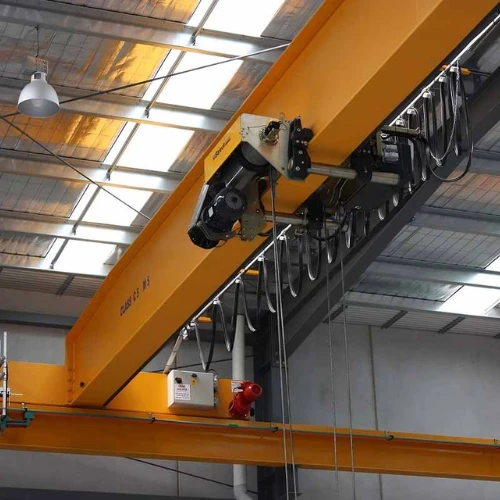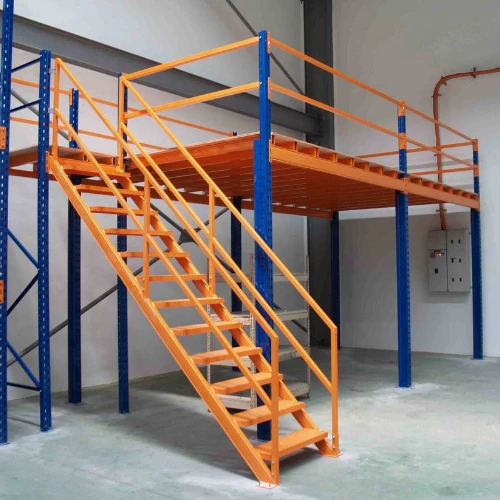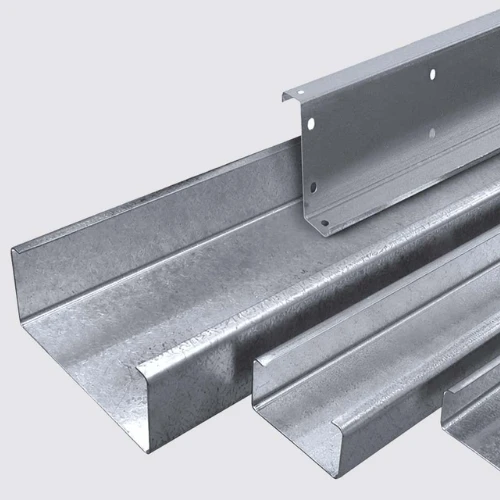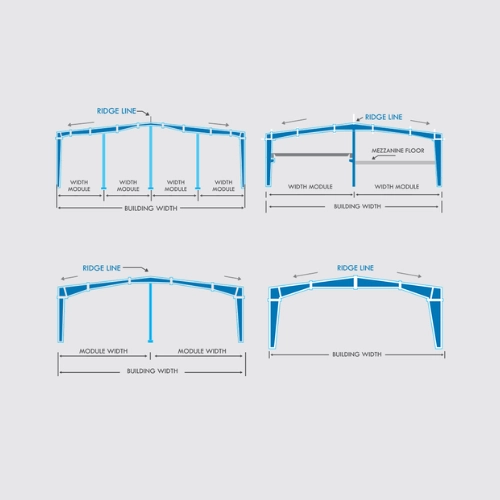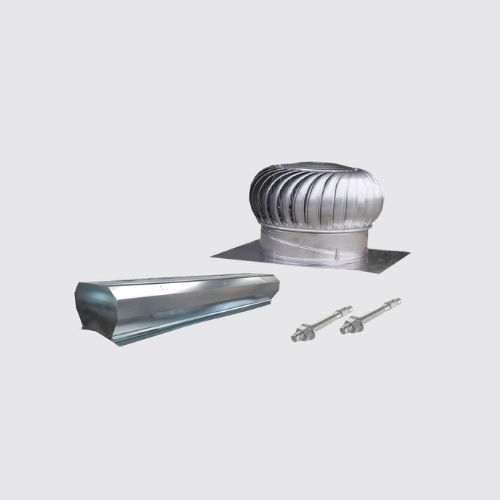When it comes to roofing, one size doesn’t fit all. The material you choose plays a pivotal role in the durability, aesthetics, and energy efficiency of your structure. While traditional roofing materials like clay tiles, asbestos, and metal sheets have long been used, a modern solution is quickly gaining traction in the construction industry: Polycarbonate Roofing Sheets.
But are these advanced materials actually better than conventional options? In this blog, we’ll explore a comprehensive comparison between polycarbonate roofing sheets and traditional roofing to help you make the right choice for your next project.
What Are Polycarbonate Roofing Sheets?
Polycarbonate Roofing Sheets are lightweight, durable thermoplastic sheets that offer high impact resistance and excellent transparency. They’re engineered to withstand extreme weather conditions while allowing natural light to pass through, making them a versatile choice for both residential and commercial buildings.
These sheets come in various forms such as:
- Solid Polycarbonate Sheets – Ideal for applications needing high impact resistance and clarity
- Multiwall Polycarbonate Sheets – Designed for thermal insulation and strength
- Corrugated Polycarbonate Sheets – Perfect for industrial sheds and warehouses
Thanks to these characteristics, many Roof Sheets Manufacturers and Peb Manufacturers now prefer polycarbonate for roofing structures across India.
Traditional Roofing Materials: A Brief Overview
Moreover, wind generates lateral pressure, uplift, and torsional forces on steel buildings. Since lighter structures are typical in steel construction, they can be more prone to uplift and drift if not adequately braced.
Seismic Forces
During an earthquake, forces like base shear, ground shaking, and sudden movements put stress on steel buildings. That’s why bracing is so important — it helps absorb this energy and protect the structure from damage.
The Role of Bracing in Structural Steel Buildings
Traditional roofing includes materials that have stood the test of time but may no longer meet the demands of modern infrastructure. These include:
- Clay Tiles – Aesthetic appeal but heavy and fragile
- Asbestos Sheets – Once popular, now avoided due to health risks
- Concrete Slabs – Durable but labour-intensive and expensive
- Galvanised Iron (GI) or Metal Sheets – Strong but prone to rust and heat conduction
While these roof sheets still serve a purpose in rural or low-cost settings, they often fall short when compared to modern alternatives like polycarbonate.
Polycarbonate Roofing Sheets vs Traditional Roofing: A Complete Comparison
1. Durability and Weather Resistance
Polycarbonate sheets are virtually unbreakable. They resist hail, heavy winds, and temperature fluctuations far better than traditional roofing materials. These sheets come with UV protection layers, preventing discolouration and weakening over time.
On the other hand, traditional materials like clay tiles can crack under pressure, asbestos degrades with age, and GI sheets are prone to rust, especially in coastal or high-rainfall areas. This makes polycarbonate the superior choice for long-term durability.
2. Weight and Structural Load
Weight is a crucial factor in roofing. Heavier materials require more structural support, increasing construction costs and complexity. Traditional materials like concrete slabs and clay tiles are significantly heavier, making them less ideal for prefab or lightweight structures.
Polycarbonate roofing sheets, however, are extremely lightweight, up to 6 times lighter than glass and significantly lighter than metal sheets. This reduces load on the structure and makes installation quicker and more cost-effective, especially for a Peb Manufacturer designing modular or pre-engineered buildings.
3. Light Transmission and Aesthetic Value
One of the standout features of polycarbonate roofing sheets is their excellent light transmission. Solid sheets offer up to 90% transparency, rivalling glass but without its fragility. This natural lighting reduces the need for artificial lighting during the day, lowering energy consumption.
Traditional roof sheets like metal or clay tiles block natural light completely, while asbestos and concrete do not offer any aesthetic or functional benefits in terms of lighting.
Modern buildings, greenhouses, and skylights are increasingly opting for polycarbonate to create open, bright, and energy-efficient spaces.
4. Thermal Insulation and Energy Efficiency
Multiwall polycarbonate sheets are designed with air pockets that offer excellent thermal insulation. This makes them perfect for maintaining indoor temperature; cool in summers and warm in winters.
Traditional roofing, particularly metal sheets, often amplifies external heat, making interiors uncomfortable and leading to higher electricity bills for cooling.For industries and warehouses where temperature control is key, many Roof Sheets Manufacturers recommend polycarbonate as a more energy-efficient solution.
5. Installation and Maintenance
Polycarbonate sheets are easy to transport, cut, and install. They can be pre-fabricated to fit the structure’s design, minimising on-site labour and installation time. This suits projects led by a Peb Manufacturer in Ahmedabad, where efficiency and speed are vital.
Maintenance is minimal, just occasional cleaning and inspections. In contrast, traditional roofing materials may require regular painting, sealing, or replacing broken tiles, especially after seasonal wear and tear.
6. Cost and Return on Investment
While polycarbonate sheets may have a slightly higher upfront cost compared to asbestos or clay tiles, the long-term savings are significant. Lower maintenance, longer lifespan, and reduced energy costs offer excellent ROI.
Traditional roofing might appear cheaper at first glance, but it involves hidden costs like labour, reinforcement, and repairs, which can add up over time.For commercial setups and pre-engineered buildings, working with an experienced Roof Sheets Manufacturer like Choice Prefab ensures you get cost-effective, high-performance roofing with lasting value.
Summary Table: At a Glance
| Feature | Polycarbonate Roofing Sheets | Traditional Roofing Materials |
| Weight | Lightweight | Heavy |
| Light Transmission | High | Low to None |
| Installation | Quick & Easy | Labor-intensive |
| Durability | Weather/Impact Resistant | Varies (prone to cracks/rust) |
| Energy Efficiency | Excellent | Moderate to Poor |
| Maintenance | Minimal | Frequent Needed |
| Lifespan | Long-lasting | Short to Medium |
Ideal Use Cases for Polycarbonate Roofing Sheets
Polycarbonate’s combination of strength, lightness, and energy performance makes it suitable for:
- Industrial sheds and warehouses
- PEB (Pre-Engineered Building) structures
- Covered walkways, patios, and atriums
- Agricultural greenhouses and nurseries
- Skylights and sunrooms
Many leading Peb Manufacturers across India now default to polycarbonate roofing in their prefabricated building designs to maximise performance, aesthetics, and energy efficiency.
Where Traditional Roofing Still Works
Despite the advantages of polycarbonate, traditional roofing materials have their place in specific scenarios:
- Cultural or heritage constructions
- Short-term or low-budget rural housing
- Regions with limited access to modern materials
- Where aesthetics demand a rustic or classic appearance
In such cases, traditional roofing can still offer value when applied appropriately.
Why Choice Prefab Recommends Polycarbonate Roofing Sheets
As a trusted Peb Manufacturer and Roof Sheets Manufacturer, Choice Prefab understands the evolving needs of modern infrastructure. With years of experience delivering prefab solutions for industries, commercial complexes, and institutional buildings, we’ve seen firsthand how polycarbonate roofing sheets outperform outdated materials in nearly every metric.
Whether you’re building a warehouse, factory, or a light-structured commercial space, our high-quality roofing solutions provide:
- Reduced structural load
- Better lighting and ventilation
- Fast-track installation
- Lower long-term costs
- A clean, modern finish
Conclusion: Which Roofing Material Should You Choose?
When comparing Polycarbonate Roofing Sheets with traditional roofing materials, the benefits are clear:
- Longer lifespan
- Greater strength
- Lower maintenance
- Enhanced thermal and light performance
- Fast and efficient installation
If you’re planning a long-term, energy-efficient, and visually appealing project, polycarbonate roofing is the smart, future-ready choice. And when sourced from a reliable Roof Sheets Manufacturer like Choice Prefab, you ensure not just quality but also peace of mind.
Still unsure which roofing is best for your next project?
Reach out to the experts at Choice Prefab, India’s trusted Peb Manufacturer and roofing solution provider, to find the perfect fit for your building.

